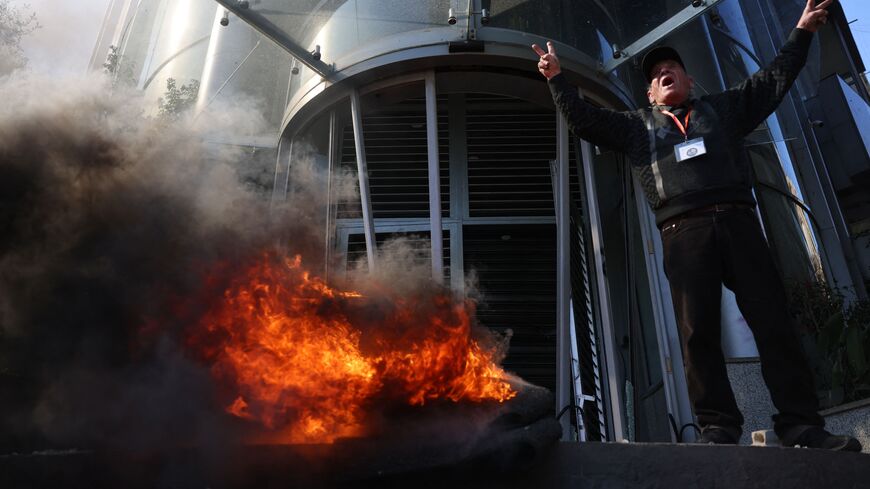People burned several banks in Lebanon on Thursday as the local currency fell to a new all-time low against the dollar.
What happened: The Lebanese pound fell to a historic record low of 80,000 against the dollar on Thursday, according to the Lira Rate website.
At least six Beirut banks were set on fire Thursday in response to the currency’s fall, the Lebanese news outlet L’Orient Today reported.
LBCI, another Lebanese news outlet, obtained footage of two banks in Beirut burning.
Fransabank and Audi bank branches in Badaro, #Beirut, have been set on fire.
— LBCI Lebanon English (@LBCI_News_EN) Feb. 16, 2023
Burning tires ignited the fire at the branches’ entrances.
Citizens have gathered at the intersection between the two branches to protest the current bank’s association strike.https://t.co/pZ6nGsq9Yp pic.twitter.com/SD8SjzrGwv
Protesters also gathered outside the house of Salim Sfeir, head of the Association of Banks in Lebanon, and started a fire, according to the official National News Agency.
What it means: The official exchange rate of 1,507 pounds to the dollar was set in 1997. The rate on the street remained roughly the same until 2019, when the economic crisis began in the country. The pound has lost more than 90% of its street value since then.
Multiple exchange rates have emerged in the country amid the crisis. The government originally kept the official 1,500-pounds-to-the dollar rate for customs, for example, before raising it to 15,000 pounds in December.
Earlier this month, the Lebanese government finally devalued the official exchange rate to 15,000 pounds to the dollar, well below the actual rate on the street, and this discrepancy allows banks to offload their massive losses onto the Lebanese public, an expert told Al-Monitor at the time.
There are also different rates for fuel, public sector salaries and other things.
.subtext-iframe{max-width:540px;}iframe#subtext_embed{width:1px;min-width:100%;min-height:256px;}Why it matters: The pound’s fall is compounding Lebanon’s misery. Many Lebanese have their savings and are paid in pounds, meaning the devaluation is dramatically reducing their purchasing power.
Inflation in Lebanon increased by more than 189% between January and November of 2022, according to the National News Agency. Last August, the credit rating agency Fitch described Lebanon’s inflation as the second-highest rate in the world.
Much of the anger is directed at financial institutions. Lebanese banks have mismanaged funds for years, and strict capital controls mean Lebanese people are unable to access most of their savings.
The situation led several Lebanese to storm banks with firearms last year to access their savings. There have also been protests throughout the crisis.
Last week, Lebanese banks closed indefinitely in demand of a new capital control law, according to Reuters.







